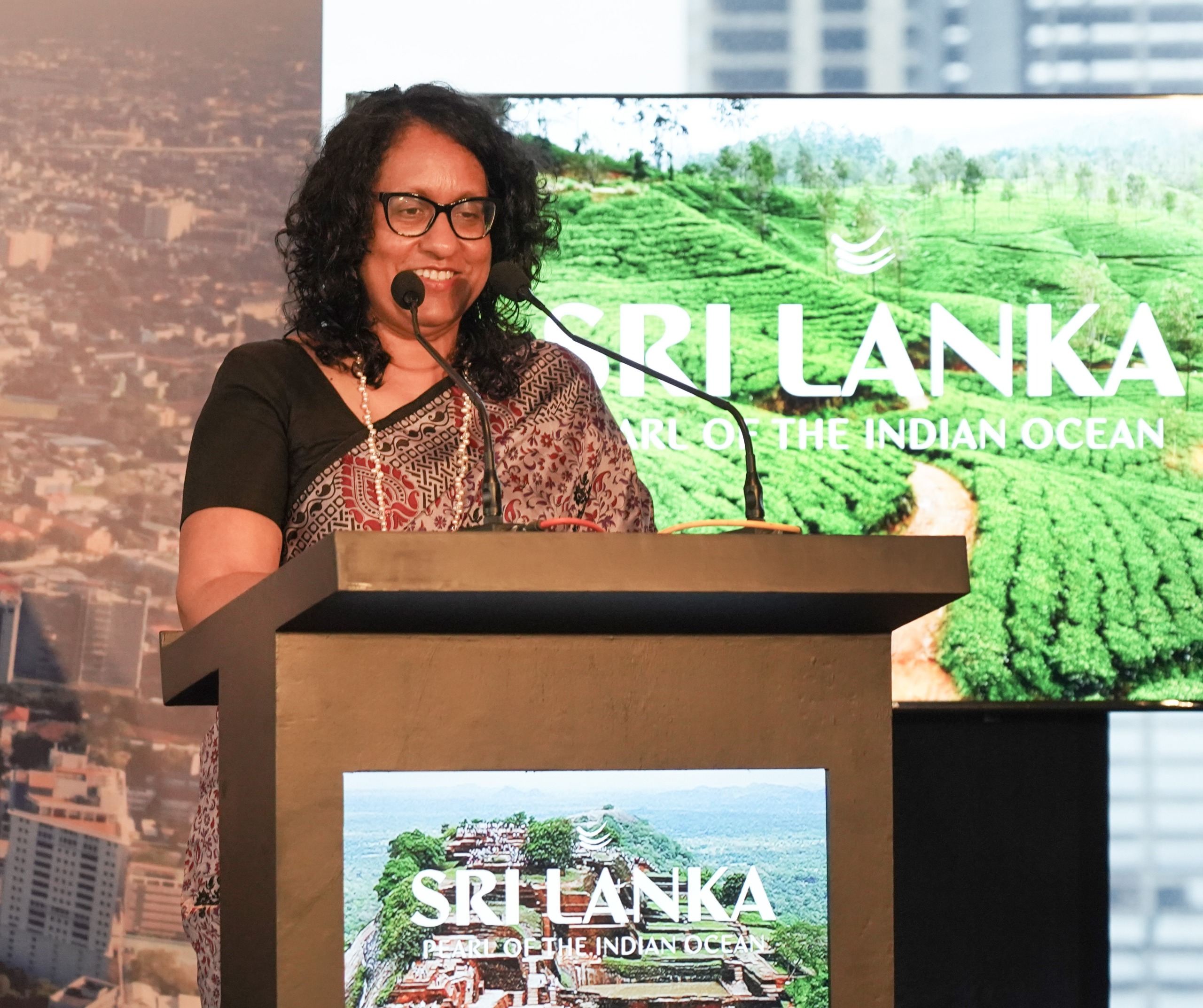News
SLACT: Curtailing dissent through violence creates atmosphere of fear and authoritarianism

The Sri Lankan Collective Against Torture (SLACT), a group comprising of 28 civil society organisations and 12 human rights activists, says that curtailing the right to protest through violence is a grave human rights violation that also places democracy in jeopardy and creates an atmosphere of fear and authoritarianism. The SLACT has said it condemns the brutal attack of protestors at GotaGoGama, journalists, lawyers who intervened in their professional capacity, and bystanders, on 22 July 2022.
“The use of violence was unprovoked and unjustifiable as video evidence and testimonies of victims illustrate that the armed forces approached or chased people who were walking or standing peacefully and subjected them to brutal assault. They also destroyed tents and personal property of the protesters on site.
“It is evident from video evidence that many attacks were carried out by several members of the armed forces who gathered around a person or persons and beat them mercilessly with batons. There were also men in civilian clothing working alongside the military and it is one such person who assaulted the BBC journalist. Two journalists were taken away by armed forces and their whereabouts were unknown for several hours after the arrest.
“When they were found they were severely injured and had to be hospitalized. Their testimonies and that of others who were taken along with them state they were tortured for hours, including by being ordered to walk on gravel on their knees and assaulted on their heads.
“The injuries sustained by some victims are on the back, indicating they were chased and hit while fleeing. This would constitute torture, which is an offence under the Convention Against Torture Act. “Furthermore, it is also a violation of Article 11 of the Constitution which prohibits torture, or cruel, degrading or inhuman treatment. It is alarming that despite protesters publicly stating on 21 July that they would vacate the location by 2 pm that very day (which was reported in the media), brutal force was used during the early hours of the morning to chase them, indicating an intent to send a warning to and punish protesters.
“SLCAT reiterates the importance of protecting the right to expression and assembly, especially the right of journalists to engage in their duties without fear of intimidation, harassment or violence. The attacks on journalists are a violation of the right to expression enshrined in the Constitution of Sri Lanka.
“SLCAT holds President Ranil Wickremesinghe responsible for the attacks and demands that he acknowledge responsibility, apologize, compensate those affected by the violence and give a public assurance that such conduct by the armed forces and police will not be repeated against protestors. SLCAT demands that the State of Emergency, which is unwarranted and under cover of which such violence took place, be withdrawn with immediate effect. Those responsible for the violence should be held accountable and the commanders of the forces that participated in the attacks must likewise be held accountable according to the principle of command responsibility.
“The right to protest is an integral part of a functioning democracy and one of the ways in which citizens exercise their civic duty of holding elected representatives accountable.
“Curtailing it through violence is a grave human rights violation that also places democracy in jeopardy and creates an atmosphere of fear and authoritarianism.”
Business
“We Are Building a Stable, Transparent and Resilient Sri Lanka Ready for Sustainable Investment Partnerships” – PM

Prime Minister Dr. Harini Amarasuriya addressed members of the Chief Executives Organization (CEO) during a session held on Thursday [3 February 2026] at the Shangri-La Hotel, Colombo, as part of CEO’s Pearl of the Indian Ocean: Sri Lanka programme.
The Chief Executives Organization is a global network of business leaders representing diverse industries across more than 60 countries. The visiting delegation comprised leading entrepreneurs and executives exploring Sri Lanka’s economic prospects, investment climate, and development trajectory.
Addressing the gathering, the Prime Minister emphasized that Sri Lanka’s reform agenda is anchored in structural transformation, transparency, and inclusive growth.
“We are committed not only to ensuring equitable access to education, but equitable access to quality education. Our reforms are designed to create flexible pathways for young people beyond general education and to build a skilled and adaptable workforce for the future.”
She highlighted that the Government is undertaking a fundamental pedagogical shift towards a more student-focused, less examination-driven system as part of a broader national transformation.
Reflecting on Sri Lanka’s recent political transition, the Prime Minister stated:
“The people gave us a mandate to restore accountability, strengthen democratic governance, and ensure that opportunity is not determined by patronage or privilege, but by fairness and merit. Sri Lanka is stabilizing. We have recorded positive growth, restored confidence in key sectors, and are committed to sustaining this momentum. But our objective is not short-term recovery it is long-term resilience.”
Addressing governance reforms aimed at improving the investment climate, she said:
“We are aligning our legislative and regulatory frameworks with international standards to provide predictability, investor protection, and institutional transparency. Sustainable investment requires trust, and trust requires reform.”
Turning to the recent impact of Cyclone Ditwa, which affected all 25 districts of the country, the Prime Minister underscored the urgency of climate resilience.
“Climate change is not a distant threat. It is a lived reality for our people. We are rebuilding not simply to recover, but to build resilience, strengthen disaster mitigation systems, and protect vulnerable communities.”
Inviting CEO members to consider Sri Lanka as a strategic partner in the Indo-Pacific region, she highlighted opportunities in value-added mineral exports, logistics and shipping, agro-processing, renewable energy, pharmaceuticals, and innovation-driven sectors.
“We are not looking for speculative gains. We are seeking long-term partners who share our commitment to transparency, sustainability, and inclusive development.”
She further emphasized collaboration in education, research, vocational training, and innovation as essential pillars for sustained economic growth.
Concluding her address, the Prime Minister expressed appreciation to the Chief Executives Organization for selecting Sri Lanka as part of its 2026 programme and reaffirmed the Government’s readiness to engage constructively with responsible global investors.
The event was attended by the Governor of the Western Province, Hanif Yusoof, and other distinguished guests.


[Prime Minister’s Media Division]
News
Prez AKD congratulates BNP’s Tarique Rahman on B’desh election win

President Anura Kumara Dissanayake has extended his congratulations to the Bangladesh Nationalist Party (BNP) and its leader, Tarique Rahman, following their landslide victory in Bangladesh’s parliamentary elections.
“Best wishes to the people of Bangladesh for reaffirming their faith in democracy, and congratulations to Mr. Tarique Rahman on leading the BNP in these elections. The results reflect the trust placed in him. I look forward to strengthening ties between our two nations,” President Dissanayake said, in a post on ‘X’.
The Bangladesh Nationalist Party won a landslide parliamentary election on Friday, securing a resounding mandate in a pivotal vote that is expected to restore political stability in the South Asian nation.
The parliamentary election held on Thursday was Bangladesh’s first vote since the 2024 Gen Z-driven uprising that toppled long-time premier Sheikh Hasina.
Opinion polls had given BNP an edge, and the party lived up to the forecasts, with the coalition it dominates winning 209 seats to secure an overwhelming two-thirds majority in the 300-member Jatiya Sangsad, or House of the Nation, Jamuna TV showed.
Soon after it won a majority in the overnight vote-count, the party thanked and congratulated the people and called for special prayers on Friday for the welfare of the country and its people.
News
Massive Sangha confab to address alleged injustices against monks

A major Sangha conference will be held on February 20 at 2 PM at the All Ceylon Buddhist Congress (ACBC) Headquarters in Colombo, bringing together both monastic and lay communities to discuss concerns over alleged injustices against Buddhist monks, the Buddha Sasana, and the nation.
Speaking at a press conference in Colombo on Thursday (12), Roshan Maddumage, Deputy Chairman of the ACBC, said the primary aim of the conference is to highlight misconduct and draw government attention to these matters.
ACBC Chairman Chandra Nimal Wakishta emphasized that the country’s legal system appears to operate inconsistently. He noted that while police officers involved in the assault of a Catholic priest were prosecuted and jailed, no investigation has been conducted into police officers accused of assaulting Buddhist monks in Trincomalee.
Wakishta stressed that the Sinhala Buddhist community has historically not engaged in violence or promoted hatred. He added that the Maha Sangha play a central role in guiding and protecting the country and the state, and that harassment or attacks on monks indirectly harm the nation as a whole.
He explained that the decision to convene the Sangha conference stems from the urgency of addressing these serious concerns, with the event expected to serve as a platform for dialogue between the clergy, lay followers, and government representatives.
-

 Business4 days ago
Business4 days agoAutodoc 360 relocates to reinforce commitment to premium auto care
-

 Midweek Review4 days ago
Midweek Review4 days agoA question of national pride
-

 Opinion3 days ago
Opinion3 days agoWill computers ever be intelligent?
-

 Midweek Review4 days ago
Midweek Review4 days agoTheatre and Anthropocentrism in the age of Climate Emergency
-

 Editorial6 days ago
Editorial6 days agoThe JRJ syndrome
-

 Opinion4 days ago
Opinion4 days agoThe Walk for Peace in America a Sri Lankan initiative: A startling truth hidden by govt.
-

 Foreign News6 days ago
Foreign News6 days agoPortugal elects Socialist Party’s Seguro as president in landslide
-

 Opinion5 days ago
Opinion5 days agoBeyond 4–5% recovery: Why Sri Lanka needs a real growth strategy













